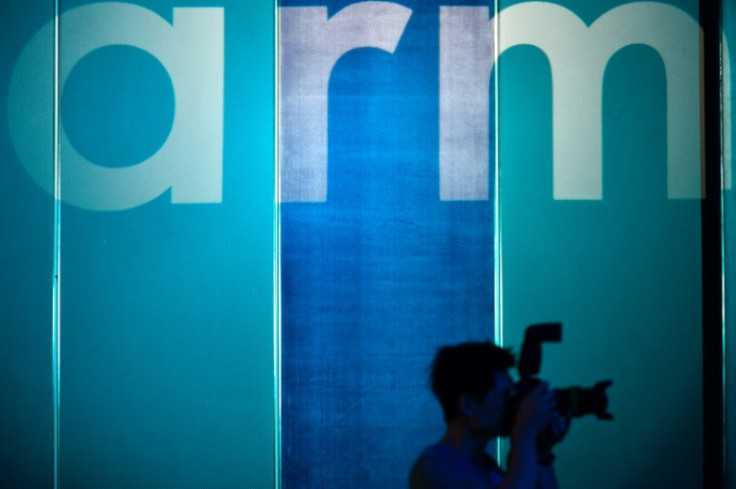Arm's Listing On NY Exchange Is A Big Wager In An Uncertain Market

Shares in the British chip designer Arm will be listed Thursday on New York's Nasdaq exchange in the biggest such offering in two years, a $50 billion wager by principal shareholder SoftBank Group amid a still uncertain market.
SoftBank, a Japanese investment holding company, is counting on the reputation of Arm, a leading microprocessor designer whose products are used in 99 percent of the world's smartphones.
Through an Initial Public Offering (IPO) of some 10 percent of the capital of the jewel of British technology, SoftBank hopes to raise between $4.5 billion and $5.2 billion, valuing the company at up to $52 billion.
That is considerably more than the $32 billion the Japanese multinational spent in July 2016 to take control of Arm, but also substantially less than the $60 billion to $70 billion that SoftBank was hoping for even a few weeks ago, according to several reports.
The stakes are high for the company founded by Masayoshi Son, whose record in tech investments in recent years has been mixed at best.
SoftBank suffered enormous losses over its investments in shared office space provider WeWork and China's e-commerce giant Alibaba.
"Nobody disputes that this is a quality company that has substantial sales, substantial profits..." said Jay Ritter, a professor specializing in stock launches at the University of Florida. "The question is about future growth potential."
He added: "There doesn't seem to be a lot of enthusiasm among institutional investors for a $50 billion valuation."
Some analysts have pointed out that Arm designs microprocessors, or CPUs, while the revolution in generative artificial intelligence relies on more powerful GPUs, or graphics processing units.
The IPO also poses a large-as-life test for the capital markets, which have not seen a stock introduction of similar magnitude since that of American e-vehicle maker Rivian, valued at $77 billion in November 2021.
"To say it's eagerly anticipated would be an understatement," said Mark Roberts, managing director of San Francisco-based Blueshirt Capital Advisors.
After what he called "a very long desert of new issue," Roberts said he expects Arm is "really going to emerge as a bellwether technology stock."
In the 18 months from January 2022 through June 2023, just $18.7 billion was raised in US stock offerings, compared to $155.8 billion in the single year of 2021, according to EY Capital Advisors.
The last time numbers as small as 2022's were seen was in 1990.
Roberts pointed out that 27 banks are taking part in the IPO.
"So you've got a lot of the Wall Street community focused on this deal being done correctly, and well," particularly since Arm decided to place its bet on Wall Street rather than London.
SoftBank also lined up a prestigious group of clients, from Apple to Nvidia, prepared to invest $735 million in Arm.
"If this deal goes well, that's a good harbinger for momentum building into a stronger 2024," Roberts said.
But another analyst, Avery Spear of Renaissance Capital, said the Arm deal would be just one data point.
"I don't think that this deal will necessarily tell us too much," she said. "We're looking for more deals like Instacart and Klaviyo to provide us maybe more information on what appetite will look like for the majority of companies looking to go public right now."
Both Instacart, the grocery-delivery company whose formal name is Maplebear, and marketing automation firm Klaviyo, filed in late August for IPOs without setting target dates.
Their valuations are estimated, respectively, at $10 billion and $9.5 billion.
Other companies reportedly considering IPOs are online payments specialist Stripe, sports merchandising giant Fanatics, and online travel platform Navan.
But the financial environment remains fragile, with the US economy still in a phase of deceleration.
"There are still certainly macro issues that investors are probably keeping their eye on," said Spear, noting above all the continued interest rate rises decided by the Federal Reserve.
"But I don't think we are at a point yet, like we were last year," she added, of a "perfect storm of bad news."
Most analysts say the Fed's monetary tightening cycle, meant to rein in high inflation, was near an end -- leaving investors breathing a bit more easily.
© Copyright AFP 2024. All rights reserved.











